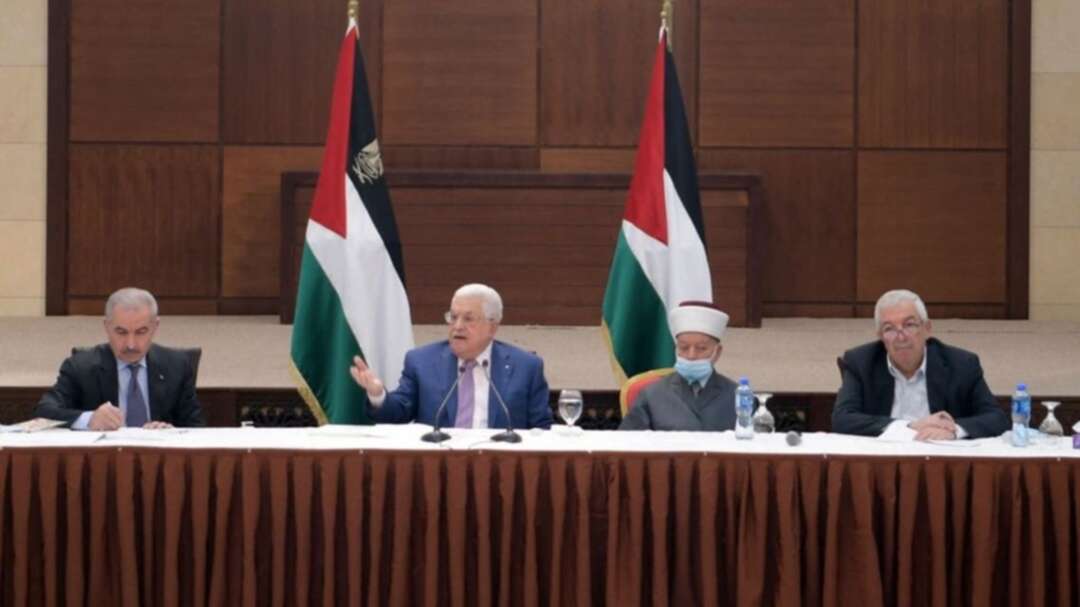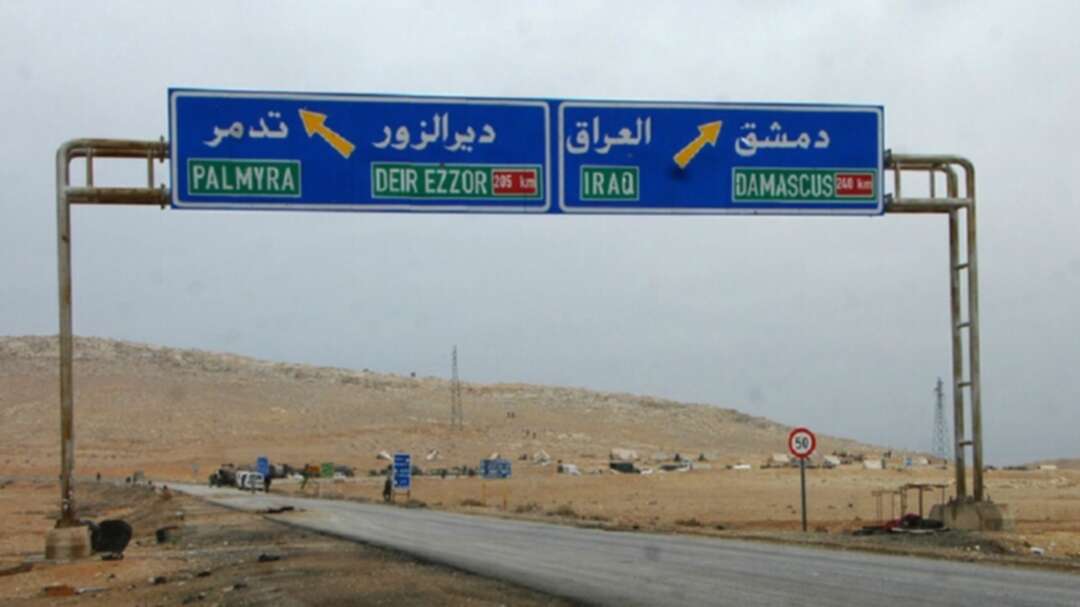-
Palestinian leader delays first elections in 15 years, Hamas rejects delay as 'coup'

Palestinian President Mahmoud Abbas said early Friday that the main factions have agreed to delay the first elections planned in 15 years, citing a dispute with Israel over voting in east Jerusalem.
The decision spares Abbas’ fractured Fatah party from what was widely expected to be another embarrassing defeat to the Islamist militant group Hamas, which slammed the move as a “coup.” It will be quietly welcomed by Israel and Western countries, which view Hamas as a terrorist group and are concerned about its growing strength.
But it leaves a political leadership in place that has failed to advance Palestinian hopes for statehood and is seen as increasingly corrupt and authoritarian.
Speaking at the start of the meeting, Abbas focused his remarks on east Jerusalem, where Israel has yet to say whether it would allow voting by mail as in past elections and has enforced a ban on Palestinian Authority activities, including campaign events.
“We will take the proper decision to preserve all our rights in east Jerusalem, our eternal capital, including the right to hold parliamentary elections there,” Abbas said in a lengthy speech before the closed-door part of the gathering.
He announced the decision shortly after midnight Thursday.
Postponing the vote over Jerusalem could be seen as a pretext, as only a small number of voters in the city would actually require Israel's permission and several candidates have suggested workarounds.
Abbas said the Palestinian Authority has repeatedly sought assurances from Israel and called on the European Union to exert pressure, to no avail. He said it received a letter from Israel on Thursday saying it could not take a position on the elections because it does not yet have a government of its own following last month's elections.
The Islamist militant group Hamas, which stands to gain influence in the elections, condemned the decision, saying it “doesn’t agree with the national consensus and popular support and is a coup.”
Prior to the announcement, Hamas had issued a statement saying the Palestinians should explore ways of “forcing the elections in Jerusalem without the permission of or coordination with the occupation.”
The group also issued a veiled warning to Abbas without mentioning him by name, saying Hamas “will not be party to any postponement or cancellation and will not provide cover.”
The responsibility for any such decision “will rest with those who take it in response to the veto of the occupation,” it said.
Hamas was expected to perform well in the May 22 parliamentary elections because of widening divisions within Fatah, which has split into three rival lists.
Israel has not said whether it will allow voting in east Jerusalem but has expressed concern about Hamas' growing strength. Israel and Western countries view Hamas as a terrorist group and would likely boycott any Palestinian government that includes it.
The day after President Joe Biden exhorted Americans to “prove that democracy still works" in an address to Congress, his State Department distanced itself from the Palestinian vote.
“The exercise of democratic elections is a matter for the Palestinian people and for the Palestinian leadership to determine," spokesman Ned Price told reporters in Washington. “We believe in an inclusive political process."
Israel captured east Jerusalem, along with the West Bank and Gaza, in the 1967 war, territories the Palestinians want for their future state. Israel annexed east Jerusalem in a move not recognized internationally and views the entire city as its capital, barring the Palestinian Authority from operating there. The Palestinians consider east Jerusalem their capital.
According to interim peace agreements reached in the 1990s — which were rejected by Hamas — some 6,000 Palestinians in east Jerusalem submit their ballots through Israeli post offices. The other 150,000 can vote with or without Israel's permission.
Fatah has said the elections cannot be held without Israel giving express permission for east Jerusalem residents to vote. Its opponents have called for creative solutions, such as setting up ballot boxes in schools or religious sites.
But Abbas appeared to rule that out on Thursday, joking that the Palestinians would not vote in “the Hungarian Embassy.”
The dispute has taken on greater import since the start of the holy month of Ramadan, as Muslim protesters have clashed with Israeli police over restrictions on gatherings.
The elections, and a presidential vote planned for July 31, offered a rare opportunity for the Palestinians to empower a new leadership and potentially chart a different course in their stalled, decades-long struggle for independence.
The 85-year-old Abbas and his inner circle of Fatah figures, now in their 60s and 70s, have dominated the Palestinian Authority for nearly two decades. They have failed to advance Palestinian hopes for statehood, heal a 13-year internal rift with Hamas, lift the Israeli-Egyptian blockade of Gaza or empower a new generation of leaders.
The last elections, held in 2006, saw Hamas win a landslide victory after campaigning as a scrappy underdog untainted by corruption. That sparked an internal crisis culminating in Hamas' seizure of Gaza the following year, which confined Abbas' authority to parts of the Israeli-occupied West Bank.
Hamas' popularity has fallen in the years since, as conditions in Gaza have steadily deteriorated. But it has remained unified and disciplined even as Fatah has split into three rival parliamentary lists.
Hamas does not recognize Israel's right to exist and has fought three wars with it since seizing control of Gaza. It has also carried out scores of attacks over the past three decades that have killed hundreds of Israeli civilians.
Image source: AFP
Levant
You May Also Like
Popular Posts
Caricature
BENEFIT Sponsors BuildHer...
- April 23, 2025
BENEFIT, the Kingdom’s innovator and leading company in Fintech and electronic financial transactions service, has sponsored the BuildHer CityHack 2025 Hackathon, a two-day event spearheaded by the College of Engineering and Technology at the Royal University for Women (RUW).
Aimed at secondary school students, the event brought together a distinguished group of academic professionals and technology experts to mentor and inspire young participants.
More than 100 high school students from across the Kingdom of Bahrain took part in the hackathon, which featured an intensive programme of training workshops and hands-on sessions. These activities were tailored to enhance participants’ critical thinking, collaborative problem-solving, and team-building capabilities, while also encouraging the development of practical and sustainable solutions to contemporary challenges using modern technological tools.
BENEFIT’s Chief Executive Mr. Abdulwahed AlJanahi, commented: “Our support for this educational hackathon reflects our long-term strategic vision to nurture the talents of emerging national youth and empower the next generation of accomplished female leaders in technology. By fostering creativity and innovation, we aim to contribute meaningfully to Bahrain’s comprehensive development goals and align with the aspirations outlined in the Kingdom’s Vision 2030—an ambition in which BENEFIT plays a central role.”
Professor Riyadh Yousif Hamzah, President of the Royal University for Women, commented: “This initiative reflects our commitment to advancing women in STEM fields. We're cultivating a generation of creative, solution-driven female leaders who will drive national development. Our partnership with BENEFIT exemplifies the powerful synergy between academia and private sector in supporting educational innovation.”
Hanan Abdulla Hasan, Senior Manager, PR & Communication at BENEFIT, said: “We are honoured to collaborate with RUW in supporting this remarkable technology-focused event. It highlights our commitment to social responsibility, and our ongoing efforts to enhance the digital and innovation capabilities of young Bahraini women and foster their ability to harness technological tools in the service of a smarter, more sustainable future.”
For his part, Dr. Humam ElAgha, Acting Dean of the College of Engineering and Technology at the University, said: “BuildHer CityHack 2025 embodies our hands-on approach to education. By tackling real-world problems through creative thinking and sustainable solutions, we're preparing women to thrive in the knowledge economy – a cornerstone of the University's vision.”
opinion
Report
ads
Newsletter
Subscribe to our mailing list to get the new updates!






















